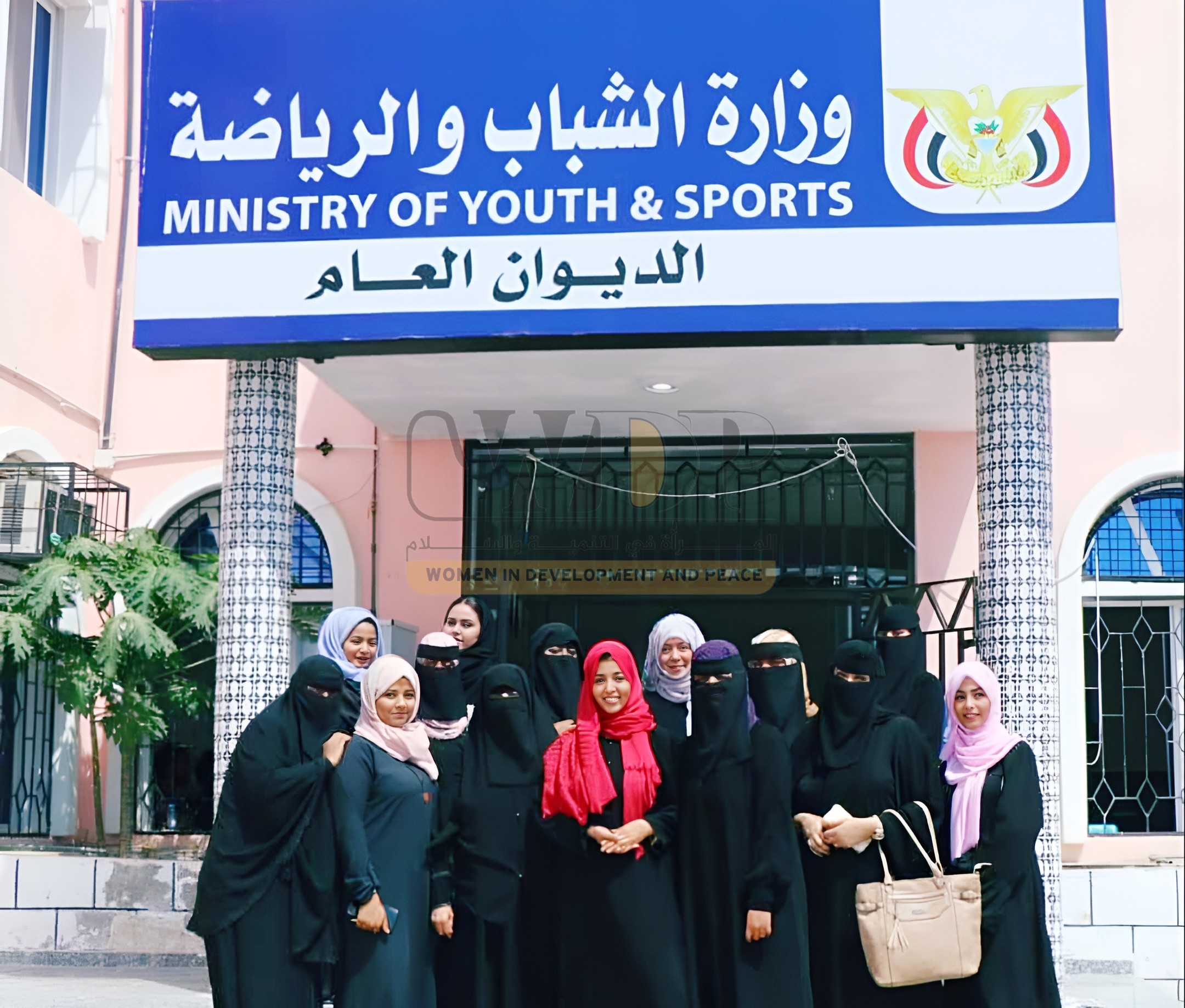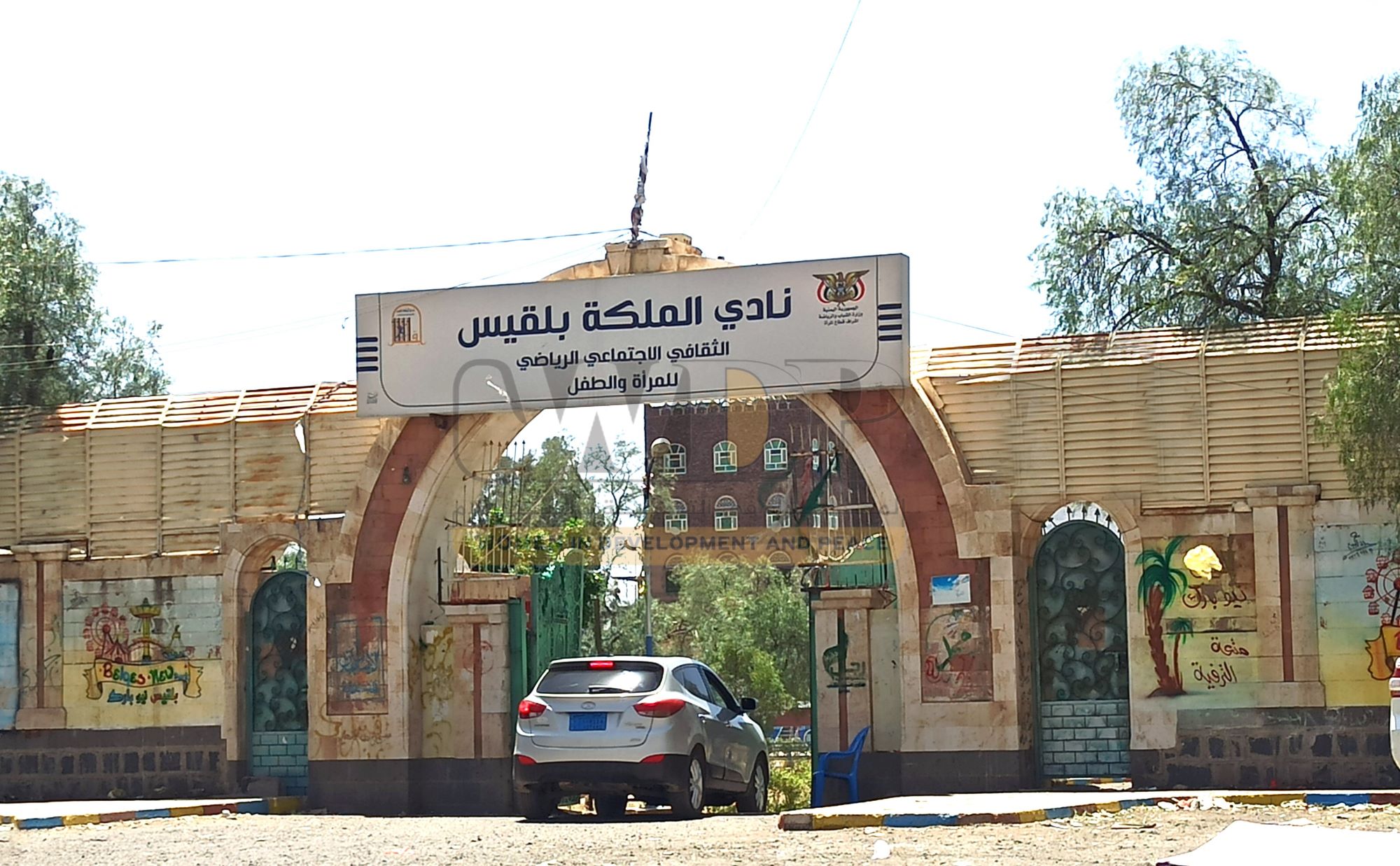Haneen Al-Wahsh – Women in Development and Peace
The low representation of women in official spheres is one of the many challenges facing Yemeni women, reaching its lowest levels in the sports sector. Recently, several talented Yemeni female athletes have emerged, but according to many, they remain forcibly excluded from the government’s attention and have not received the encouragement and support they need.
While some talented female athletes have succeeded in representing Yemen abroad, participating in various championships, and reaching qualifying rounds for finals – including girls who have won first place in Arab championships – they have overcome societal challenges and a lack of government attention to women’s sports.
Early Beginnings and Early Disappearance
Several historical sources indicate that women’s sports officially began in South Yemen early after independence, with women’s teams forming at various clubs in 1970, starting with the establishment of the national women’s volleyball team.
The team participated in several international tournaments, most notably the “Asian Table Tennis Championship” held in the People’s Republic of China in 1971. This was followed by the participation of other women’s teams in various championships, including the “Three Continents Championship” for table tennis, and a Yemeni player won the bronze medal at the International Chess Championship in Libya in 1975.
However, this early start soon faded and began to decline for more than two decades for several political and social reasons, including the emergence of intrusive voices in the cultural milieu calling for the isolation of women from sports, considering it contrary to customs and traditions.
Official support for women’s sports teams declined until it was extinguished. However, signs of a comeback began to appear between 2017 and 2022 with the holding of open table tennis championships for girls and women, organized by the Aden branch of the game’s federation, under the supervision of the Aden Youth and Sports Office.
Continuous Obstacles
Regarding the current official status of the sports sector, Khalid Muhsin Al-Khalifi, Undersecretary of the Sports Sector at the Ministry of Youth and Sports in Aden, says: “Regarding the sports situation in general, not just for women, we have faced a significant challenge in confronting all the difficulties facing the country in general by reaching advanced stages despite the limited resources, including launching official championships for many sports at the level of the entire Republic of Yemen. We have also worked hard to maintain the cohesion of sports institutions and protect them from fragmentation and disintegration in all Yemeni regions under the exceptional circumstances the country is going through.”
In the same context, Al-Khalifi confirms that the damage has been very significant and has had a clear impact on the sports sector and female athletes. He states: “The most important sports fields, halls, and club headquarters have been destroyed in Aden, Abyan, Lahj, Al-Dhali, Taiz, and other Yemeni governorates, most of which have suffered significant damage.”
He continues: “We can clearly say that the sector was witnessing a kind of stability in providing support from the Youth and Childhood Care Fund, and as a result, there was discipline in championships and participation, in addition to the fact that the sports qualification and training program was progressing well.”
Speaking about Yemeni women in the sports sector and their situation in general, Farhan Al-Muntasir, Head of the Federation and Clubs Department at the Ministry of Youth and Sports in Aden, says: “The regulations and statutes governing sports in Yemen grant equality to women and men. There is no discrimination between them regarding resources and opportunities, and the ministry supports and encourages this approach as their right without barriers unless the obstacle is moral or religious.”
He adds: “In general, sports federations and sports councils have a specific girl responsible for or heading a specific sports federation. For example, there is a president of the Boxing Federation and another for the Table Tennis Federation, and so on.”
He stresses that there is interest in all clubs, through regulations and on the ground as well. He states: “Yemen is the only country that has gone so far as to establish a women’s sports federation tasked with coordinating sports work between federations. It used to receive significant support, organize championships and external participations, and achieve accomplishments in the past.”
Among the difficulties, Al-Muntasir points out that sports need the stability that has been absent during the conflict and that there is a financial crisis, which has reduced the support provided to the sports sector in general, which has also been reflected in women’s federations. He emphasizes that the interest is significant theoretically, but action requires financial resources for implementation.
Future Visions Hindered by the Current State
The cessation of conflict and the start of reconstruction and reconciliation are among the most important factors that will contribute to reshaping the sporting life of women in Yemen anew, powerfully, and transforming it into an independent and self-sufficient economy.
Al-Khalifi believes that talking about any development plans or setting plans amid conflict and the absence of peace in all Yemeni governorates is extremely difficult.
Regarding future visions for developing women’s sports in Yemen, Al-Khalifi confirms that the visions and strategies that would benefit this aspect are ready but awaiting the appropriate environment for implementation. He continues: “Upon achieving the peace process and economic recovery, the sector will work to reshape sporting life in a way that contributes to its transformation into an independent and self-sufficient economy, but it currently relies on support from the country and society and currently represents a source of income for female players, coaches, and referees in various sports.”
For his part, and within the same framework, Farhan Al-Muntasir says: “Women’s sports will be granted more financial support and many participations and championships. Training centers will be established specifically for women in all sports at the level of Aden and all governorates, once the most important element is available, which is the financial resource in the future, and this is what we hope for.”


